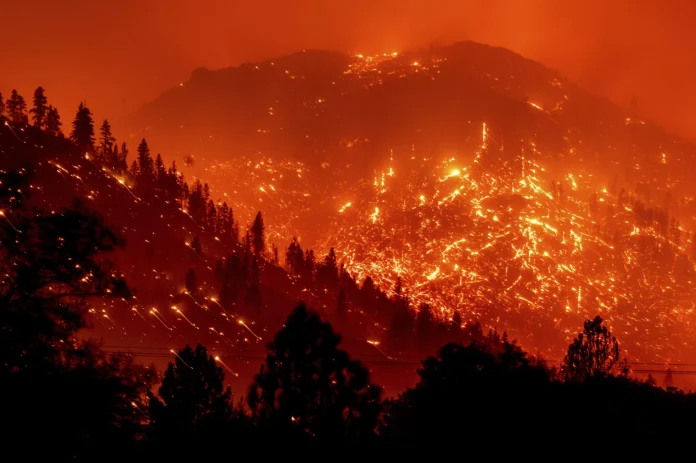Fire suppression activities have been a crucial part of our efforts to control and prevent wildfires. However, a new study has found that these activities may be causing more harm than good. According to the study, published in Nature, fire suppression efforts are not only exacerbating the impacts of climate change, but also eliminating the possibility for low- and moderate-intensity fires.
The study highlights the fact that while these suppression activities may minimize the overall area burned, they are also creating a more hostile environment for future fires to burn. This means that when a fire does occur, it is more likely to burn at a higher severity and cause more damage. This is a concerning finding, as wildfires have been increasing in frequency and severity in recent years, causing immense damage to both human life and the environment.
One of the main reasons for this is the changing climate. As the Earth’s temperature continues to rise, the conditions become increasingly favorable for wildfires to occur. Higher temperatures, combined with prolonged droughts, create the perfect breeding ground for these devastating fires. And unfortunately, our efforts to suppress these fires may be making the situation worse.
The study found that by suppressing low- and moderate-intensity fires, we are altering the natural cycle of wildfires. These types of fires play an important role in maintaining a healthy ecosystem and preventing more severe fires. They clear out excess vegetation, allowing for new growth and reducing the risk of larger fires. However, by suppressing these fires, we are creating a buildup of fuel that can lead to more intense and destructive fires in the future.
Furthermore, the study also highlights the fact that our current fire suppression efforts are not sustainable in the long run. As more resources and manpower are dedicated to suppressing fires, there is less focus on prevention and mitigation measures. This can lead to a vicious cycle, where fires become more severe and require even more resources to be suppressed, leaving little to no resources for prevention efforts.
It is clear that a change in approach is needed when it comes to managing wildfires. We cannot continue to rely solely on suppression efforts, as they are proving to be counterproductive in the long run. Instead, we must shift our focus towards prevention, mitigation, and embracing the natural cycle of wildfires.
This means allowing for more low- and moderate-intensity fires to burn, as long as they do not pose a threat to human life or property. By doing so, we can reduce the buildup of fuel and create a healthier ecosystem that is better equipped to handle future fires. Along with this, we must also invest in prevention measures such as prescribed burns, which mimic natural fires and can help reduce the risk of larger fires.
It is also important to acknowledge the role of climate change in exacerbating wildfires. As a global community, we must take urgent action to reduce our carbon footprint and mitigate the effects of climate change. This will not only help in preventing future wildfires but also have a positive impact on the environment as a whole.
In conclusion, the study’s findings are a wake-up call for all of us. It is crucial that we rethink our approach to managing wildfires and focus on long-term, sustainable solutions. By doing so, we can help minimize the impacts of climate change and create a more resilient ecosystem that is better equipped to handle wildfires. It is time to take action and work together towards a safer and healthier future.

